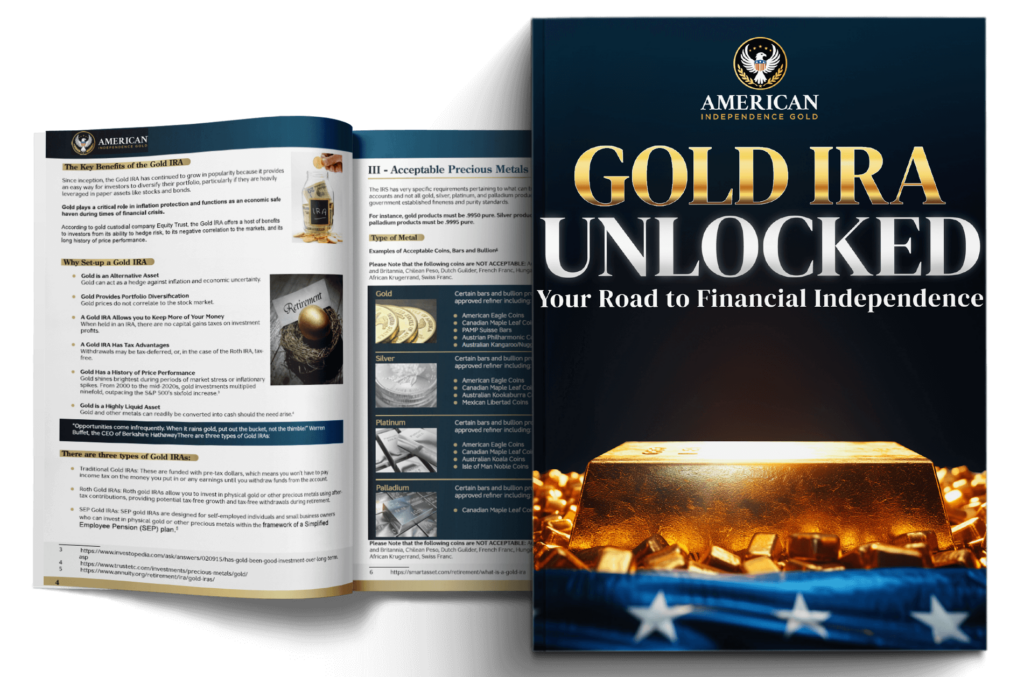
Key Highlights
- Equities and gold are both popular investment options that have shown strong returns in the past.
- Gold acts as a safe haven asset during times of market volatility, while equities have the potential for high returns.
- Over the past 10 years, the price of gold has surged by 111%, while the benchmark Nifty has given over 200% returns.
- Equities come with higher risk compared to gold, but they also offer the opportunity for greater rewards.
- Expert opinions on whether to invest in equities or gold this Diwali vary, with some favoring equities for their potential growth and others recommending gold as a hedge against economic uncertainties.
Introduction
The debate between equities and gold as investment options has been ongoing for years. Both asset classes have their own unique characteristics and potential for returns. As Diwali approaches, investors are looking for the best investment avenue to park their money. Traditionally, gold has been the go-to choice during Diwali, but with changing times, many investors have turned to equities for potentially higher returns.
Gold has long been considered a safe haven asset, especially during times of market volatility. The precious metal acts as a hedge against inflation and economic uncertainties, making it an attractive option for risk-averse investors. On the other hand, equities offer the potential for high returns and capital appreciation. The stock market has shown resilience over the years, with periods of crashes followed by strong recoveries.
In this blog, we will delve deeper into the nature of equities and gold as investment options. We will analyze their historical performance, factors influencing market trends, risk management strategies, investment approaches, and expert opinions on equities and gold. By the end of this blog, you will have a better understanding of equities and gold and be able to make an informed decision on which option suits your investment goals and risk tolerance.
Understanding Equities and Gold as Investment Options
Equities and gold are two distinct asset classes that serve as investment instruments for investors. Equities, also known as stocks, represent ownership in a company. When an individual buys shares of a company, they become shareholders and are entitled to a portion of the company’s profits. On the other hand, gold is a precious metal that has been used as a form of currency and a store of value for centuries. It is a physical asset that can be bought in the form of jewelry or bullion.
The Nature of Equity Investments
Equity investments involve buying shares of a company listed on the stock market. The stock market is a platform where buyers and sellers trade shares of publicly traded companies. Equity investments have the potential for high returns, but they also come with higher risks compared to other investment options. The value of equities can fluctuate greatly due to various factors such as market conditions, economic indicators, and company performance. Investors who are willing to take on higher risks may choose equities as a way to grow their wealth over the long term.
Gold as a Timeless Asset
Gold has always been considered a safe haven asset and a store of value. During times of market volatility and economic uncertainties, investors tend to flock to gold as a safe investment. The precious metal has intrinsic value and is not affected by inflation or currency fluctuations. Unlike other investments, gold is a physical asset that can be held in the form of jewelry or bullion. It is a tangible asset that provides a sense of security to investors. Gold is also a precious metal with limited supply, making it a valuable asset to own. Many investors view gold as a long-term investment and a hedge against economic downturns.
Historical Performance Analysis
To understand the performance of equities and gold over time, it is essential to analyze their historical data. By looking at past trends, we can gain insights into how these investment options have performed and their potential for future growth. In the following sections, we will explore the historical performance of equities through the decades and track the value of gold over time.
Equities Through the Decades
Equities have shown remarkable growth over the decades, but they have also experienced periods of volatility. The Dow Jones Industrial Average (DJIA), a widely recognized stock market index, provides insights into the performance of equities over time. Let’s take a look at the annual returns of the DJIA and the compound annual growth rate (CAGR) over the past few decades.
|
Decade |
DJIA Annual Return |
CAGR |
|
1980s |
11.8% |
12.7% |
|
1990s |
17.2% |
18.2% |
|
2000s |
-0.4% |
-0.4% |
|
2010s |
13.4% |
14.3% |
|
2020s (till date) |
21.7% |
22.9% |
Over the past few decades, equities have delivered strong returns, with the CAGR ranging from 12.7% in the 1980s to 22.9% in the 2020s. These figures demonstrate the potential for growth in the equity market and why investors are drawn to this asset class.
Gold’s Value Over Time
The price of gold has witnessed significant fluctuations over time, influenced by various factors such as economic conditions, market sentiment, and geopolitical events. Let’s take a closer look at the historical price of gold and its performance over the years.
In 2013, the price of 1 ounce of gold was around $1,342.63. As of now, the price has surged to approximately $2,321.45 to $2,439.74. reflecting a massive 111% return over the past 10 years. Gold has proven to be a valuable investment for those seeking a safe haven asset and a hedge against inflation. Despite short-term price fluctuations, gold has maintained its value over time and has provided investors with stable returns.
Factors Influencing Market Trends
Various factors can influence the trends in both the equity and gold markets. Economic indicators, global events, and market conditions play a significant role in shaping the performance of these investment options. Understanding these factors is crucial for investors to make informed decisions and navigate the market effectively.
Economic Indicators Affecting Equities
Economic indicators such as interest rates, monetary policies, and inflation rates have a direct impact on the equity market. The decisions of central banks, like the Federal Reserve in the United States, can influence the direction of the stock market. Changes in interest rates can affect borrowing costs for businesses and consumers, thereby impacting spending and investment patterns. Equities are often considered an inflation hedge, as companies can increase their prices to maintain profitability during inflationary periods. Understanding these economic indicators can help investors assess the potential risks and rewards of investing in equities.
Global Events and Gold Prices
Global events, such as geopolitical tensions and changes in the global economy, can significantly impact gold prices. Gold is often seen as a safe haven asset during times of uncertainty and market volatility. For example, during periods of geopolitical tensions, investors tend to flock to gold as a store of value. Additionally, the actions of central banks, particularly those of the United States, can influence the price of gold. Changes in monetary policies and interest rates can affect the demand for gold as an investment. It is important for investors to stay updated on global events and their potential impact on gold prices.
Risk Management in Investments
Managing risks is crucial when it comes to investments. Both equities and gold come with their own set of risks and require careful consideration and diversification to mitigate potential losses. By understanding the risks associated with these investment options, investors can make informed decisions and develop strategies to manage their investments effectively.
Diversifying with Equities
One of the key risk management strategies in equity investments is diversification. Diversification involves spreading investments across different sectors, industries, and geographic regions. This helps to reduce the impact of any individual investment on the overall portfolio. Investors can achieve diversification by investing in mutual funds, which pool money from multiple investors and invest in a diversified portfolio of stocks. Mutual funds provide a convenient way for investors to gain exposure to the equity market while minimizing risk. By diversifying their equity investments, investors can potentially mitigate the impact of market volatility and improve their chances of long-term success.
The Safe Haven of Gold
Gold is often considered a safe haven asset due to its ability to retain value during times of economic uncertainty. Investors can include gold in their portfolios as a hedge against market volatility and as a store of value. One way to invest in gold is through a Gold IRA, which allows individuals to hold physical gold within a retirement account. Another popular option is investing in gold bullion, which can be purchased in the form of bars or coins. These physical forms of gold provide a tangible asset that can be easily stored and accessed. Including gold in an investment portfolio can provide stability and diversification, reducing overall risk.
Investment Strategies for Modern Investors
Investment strategies play a crucial role in determining the success of an investor. Modern investors have access to a wide range of investment options and tools that can help them achieve their financial goals. By understanding different investment approaches and their potential benefits, investors can develop strategies that align with their risk tolerance and investment objectives.
Long-Term Equity Investment Approaches
Long-term equity investment approaches focus on capital appreciation over an extended period. Investors with a long-term outlook are typically less concerned with short-term market fluctuations and focus on the bottom line growth of their investments. They identify companies with strong fundamentals and growth prospects and hold onto their investments for an extended period, allowing their investments to compound over time. Long-term equity investors set milestones and make investment decisions based on their long-term goals rather than short-term market trends.
Timing the Gold Market
Timing the gold market can be challenging due to its price volatility. Investors who are looking to capitalize on short-term price movements may consider trading gold futures or investing in gold bonds. Gold futures allow investors to speculate on the future price of gold without actually owning the physical metal. Gold bonds, on the other hand, are debt instruments issued by the government that are linked to the price of gold. These investment options require careful analysis of market trends and an understanding of market volatility. Investors should consider their risk tolerance and investment goals before attempting to time the gold market.
Expert Opinions on Equities vs Gold
Expert opinions on equities and gold can provide valuable insights for investors. Financial analysts and economists have different viewpoints on which investment option is better suited for specific market conditions. While some experts may favor equities for their potential growth and high returns, others may recommend gold as a safe haven asset during economic uncertainties. It is important for investors to consider these expert opinions as part of their investment decision-making process.
Financial Analysts on Equity Trends
Financial analysts closely monitor market conditions and provide insights into equity trends. Their analysis takes into account various factors, such as the current state of the economy, market sentiment, and historical data. Financial analysts use these factors to make predictions and recommendations for investors. Their opinions on equity trends can help investors make informed decisions about their investment strategies. For example, during
periods of economic growth and stability, financial analysts may recommend investing in equities for potential gains. Their expertise and knowledge of the market provide valuable guidance for investors.
Gold Investment Insights from Economists
Economists provide insights into gold investments by analyzing the state of the economy and its potential impact on the price of gold. They consider gold as a safe investment during times of economic uncertainty and market volatility. Economists study the correlations between gold prices and various economic indicators to understand the role of gold as a hedge against inflation and currency fluctuations. Their insights can help investors make informed decisions about including gold in their investment portfolios. By considering the opinions of economists, investors can gain a better understanding of the potential benefits and risks of investing in gold.
Future Projections
Future projections provide investors with an outlook on the performance of equities and gold in the coming years. By analyzing current market trends, economic indicators, and global events, experts can make predictions about the future direction of these investment options. Investors can use these projections as a guide to develop their investment strategies and make informed decisions. However, it is important to note that future projections are based on assumptions and are subject to change based on evolving market conditions.
Predicting Equity Market Movements
Predicting equity market movements requires analyzing various factors, including the outlook for the economy, monetary policies of central banks like the Federal Reserve, and the strength of the dollar. Experts use a combination of technical analysis, fundamental analysis, and market trends to make predictions about the future performance of the equity market. However, it is important to note that predicting market movements is not an exact science and comes with inherent uncertainties. Investors should consider these predictions as part of their overall investment strategy and diversify their portfolio to mitigate risk.
Anticipating Changes in Gold Prices
Anticipating changes in gold prices requires a thorough understanding of the gold market and its relationship with various factors such as inflation, geopolitical events, and market sentiment. Gold is often seen as an inflation hedge and a safe haven asset during times of market volatility. Experts analyze these factors to make predictions about the future performance of gold prices. However, it is important to note that the gold market can be influenced by unpredictable events, and price movements may not always follow predictions. Investors should consider these projections as part of their investment strategy and diversify their portfolio to manage risk.
Conclusion
In conclusion, understanding the dynamics of equities and gold as investment options is crucial for making informed financial decisions. While equities offer growth potential, gold serves as a traditional hedge during times of uncertainty. By analyzing historical performance, market trends, and risk management strategies, investors can tailor their investment approach to suit their goals. Expert opinions and future projections provide valuable insights for navigating the complexities of the financial markets. Whether choosing equities or gold, diversification and market awareness remain paramount for achieving long-term investment success.
Frequently Asked Questions
Is it better to invest in gold or equities during economic downturns?
During economic downturns, gold is often considered a safe haven asset that can protect investors from market volatility and falling stock prices. However, diversification is key to managing risk, and a balanced portfolio may include both gold and equities.
How do geopolitical tensions affect gold and equity markets?
Geopolitical tensions can impact both gold and equity markets. Heightened geopolitical tensions often lead to increased demand for gold as a safe haven asset, causing its price to rise. Equity markets can experience volatility and uncertainty due to geopolitical events and their potential impact on global economies.
What should new investors know about diversifying between gold and equities?
New investors should understand the importance of diversification and the benefits of including both gold and equities in their investment portfolio. Diversification across different asset classes can help manage risk, and a balanced investment strategy can provide exposure to potential growth and stability.





